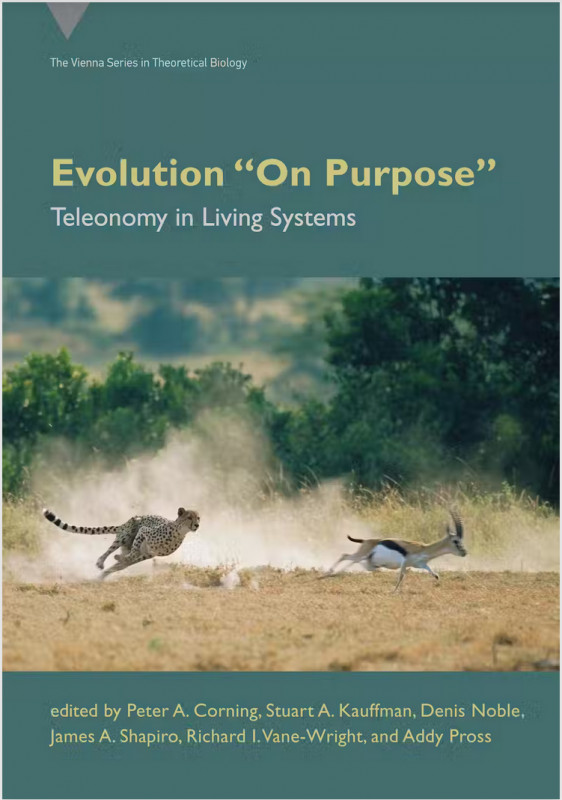News Details

A new book has been published in the Vienna Series in Theoretical Biology at The MIT Press: Evolution “On Purpose”- Teleonomy in Living Systems edited by Peter A. Corning, Stuart A. Kauffman, Denis Noble, James A. Shapiro, Richard I. Vane-Wright, and Addy Pross. The book is a unique exploration of teleonomy—also known as “evolved purposiveness”—as a major influence in evolution by a broad range of specialists in biology and the philosophy of science.
Contributors include František Baluška, Peter A. Corning, Dominik Deffner, Simona Ginsburg, Francis Heylighen, Abir U. Igamberdiev, Eva Jablonka, Stuart A. Kauffman, Kalevi Kull, Michael Levin, William B. Miller Jr., Stuart Newman, Denis Noble, Raymond Noble, Samir Okasha, Robert Pascal, Addy Pross, Arthur S. Reber, Andrea Roli, James A. Shapiro, Anthony Trewavas, Tobias Uller, Richard I. Vane-Wright, Denis M. Walsh.
The evolved purposiveness of living systems, termed “teleonomy” by chronobiologist Colin Pittendrigh, has been both a major outcome and causal factor in the history of life on Earth. Many theorists have appreciated this over the years, going back to Lamarck and even Darwin in the nineteenth century. In the mid-twentieth century, however, the complex, dynamic process of evolution was simplified into the one-way, bottom-up, single gene-centered paradigm widely known as the modern synthesis. In Evolution “On Purpose” some twenty theorists attempt to modify this reductive approach by exploring in depth the different ways in which living systems have themselves shaped the course of evolution.
Evolution “On Purpose” puts forward a more inclusive theoretical synthesis that goes far beyond the underlying principles and assumptions of the modern synthesis to accommodate work since the 1950s in molecular genetics, developmental biology, epigenetic inheritance, genomics, multilevel selection, niche construction, physiology, behavior, biosemiotics, chemical reaction theory, and other fields. In the view of the authors, active biological processes are responsible for the direction and the rate of evolution. Essays in this collection grapple with topics from the two-way “read-write” genome to cognition and decision-making in plants to the niche-construction activities of many organisms to the self-making evolution of humankind. As this collection compellingly shows, and as bacterial geneticist James Shapiro emphasizes, “The capacity of living organisms to alter their own heredity is undeniable.”

